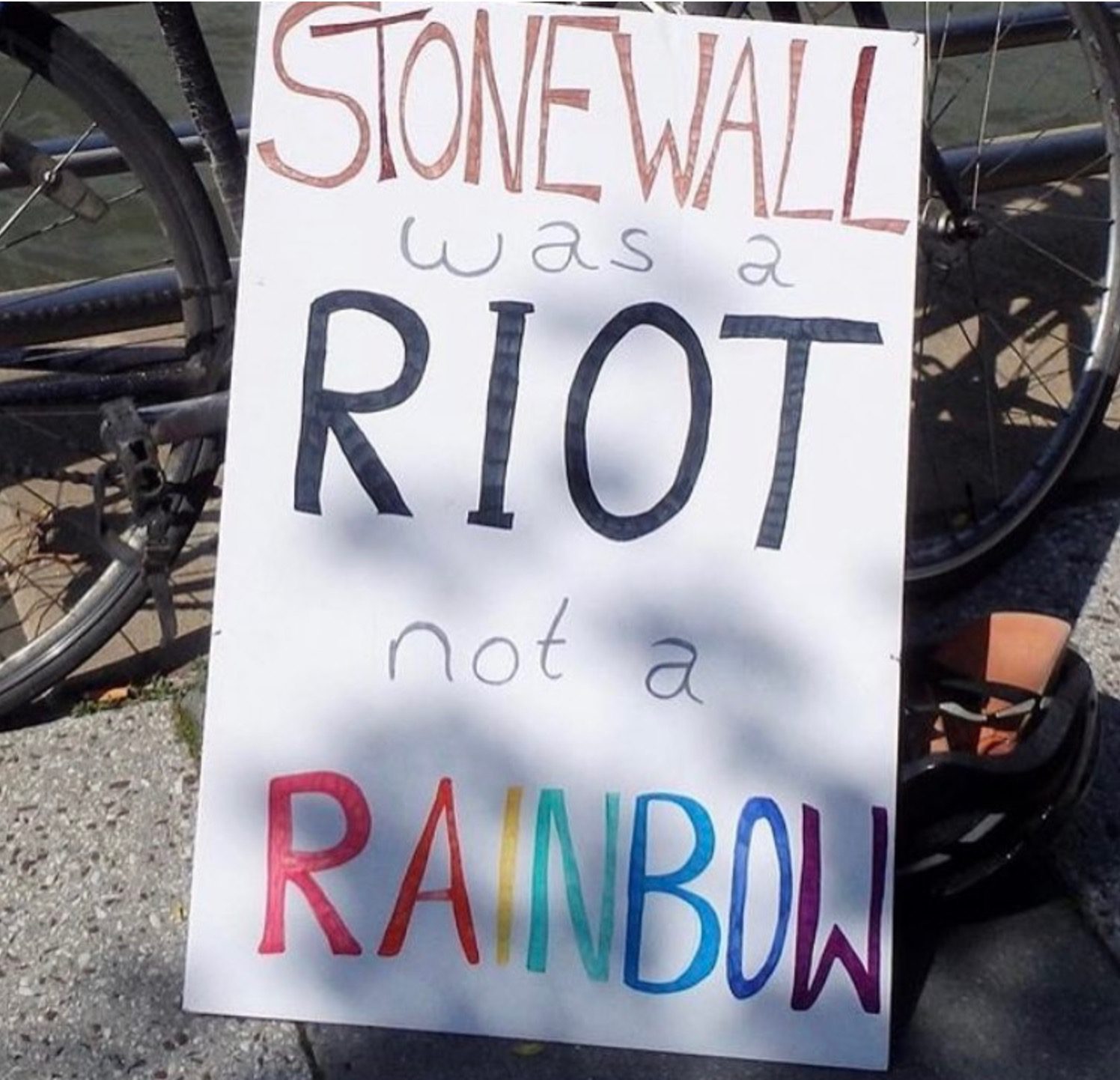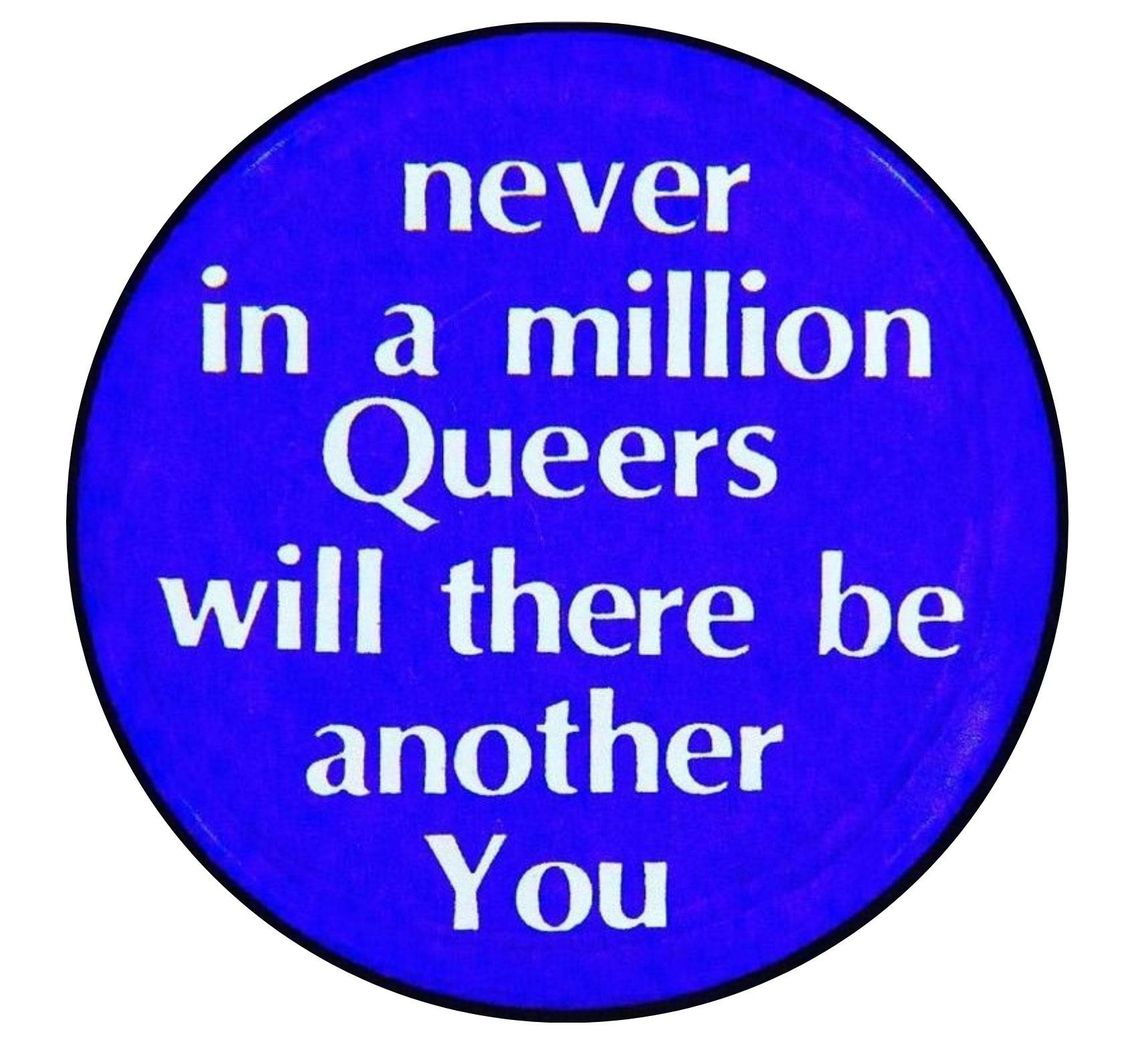“They always say that time changes things, but you actually have to change them yourself.” – Andy Warhol
Early on the morning of Saturday, June 28, 1969, police raided the Stonewall Inn, a gay bar at 43 Christopher Street in Greenwich Village, New York City. While police raids on gay bars were routine in the 1960s, on this particular day the patrons at the Stonewall decided they were not in the mood for protocols.
Officers quickly lost control, and the situation exploded into a riot. The conflict between police and the LGBTQ+ community in Greenwich Village ignited protests over the following nights. A year later, on June 28, 1970, the first gay pride marches took place in Chicago, Los Angeles, New York, and San Francisco. Within a few years, gay rights organizations spread across the U.S. and beyond.
Over a half-century later, the riot that inspired an annual pride march has become a parade led by capitalism. Corporations poorly camouflage their intentions with rainbow patterns. While there is still a spirit of acceptance, it now references payment methods.
In 2022, as more corporations enter Pride, the more exclusive it becomes. Liberation is being replaced by luxury. Pride has evolved into a branded affair, shifting from its roots in riot and protest. This history is at risk, with consequences that threaten access for vulnerable communities.
More people are excluded from Pride due to costs, challenging the movement’s original purpose. According to Dick Leitsch, one of America’s first openly gay journalists, the Stonewall Inn charged a $3 cover in 1969. Once inside, patrons could drink or not—making it a community center for those marginalized by society.
When police raided the bar that night, patrons fought for it. It was all they had. Their resolve is the foundation of the progress enjoyed today.
There are parallels to issues in the cannabis industry, where marginalized communities bear the burdens of progress. The role the LGBTQ+ community played in early cannabis legalization is fading under capitalism.
People like Dennis Peron were pioneers. A gay Vietnam veteran and the author of Proposition 215, he ran an underground cannabis operation serving the LGBTQ+ community. Peron was arrested over 20 times but remained committed to the movement.
Mary Jane Rathbun (aka Brownie Mary) also fought for medical cannabis rights. As a hospital volunteer during the AIDS crisis, she saw firsthand the suffering of queer patients. Her cannabis-infused brownies provided relief, but her activism led to arrest. The publicity from her arrest helped advance the medical cannabis movement.
The legacies of Peron and Rathbun are reminders of compassion over capitalism. Yet the current trend in the LGBTQ+ cannabis community threatens to erase their impact.
A recent search for “queer cannabis” led me to a Forbes article about a “Queer Cannabis Club” founded by a luxury retailer. The club launched at Aspen Gay Ski Week, an event that can cost up to $3,000—excluding many from participation.
This realization compelled me to explore the history of my community. I found strength in learning about those who fought for progress, reminding me of the importance of the movement.
In today’s political landscape, many civil liberties are at risk. It’s alarming how easily hard-won rights can be rolled back. Perhaps it’s time to focus less on the value of money and more on the value of change.




